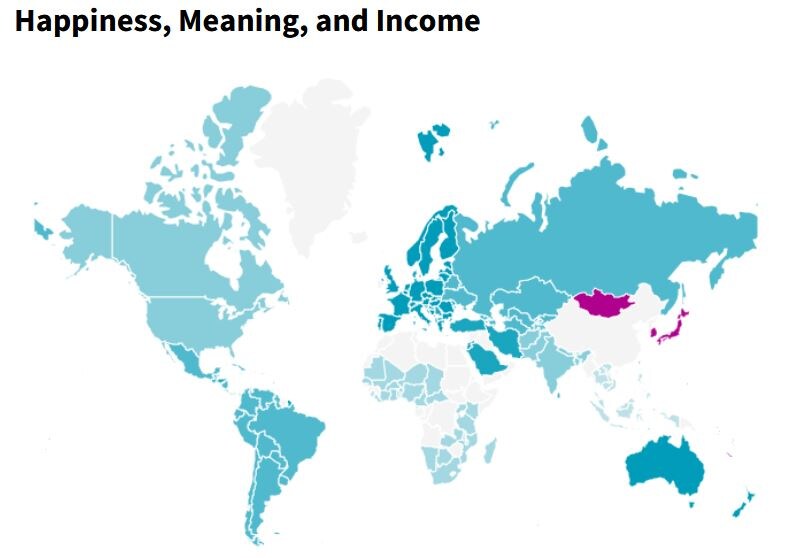
A global look at the connections between happiness, income, and meaning
Wealthy people may be happier. But a new study finds that money can't buy a sense of purpose
 The relationship between happiness and our sense of meaning can change depending on our financial situation.
Image: Shutterstock
The relationship between happiness and our sense of meaning can change depending on our financial situation.
Image: Shutterstock
“Humans think happiness is this one thing: You’re either happy or you’re not,” Jennifer Aaker says. Of course, it’s not so simple: New research conducted by Aaker and her colleagues not only challenges the assumption that happiness is binary but also finds that the relationship between happiness and our sense of meaning can change depending on our financial situation.
“This is particularly interesting because research has shown when people get wealthier, they experience greater happiness,” explains Aaker, a marketing professor at Stanford Graduate School of Business who has extensively studied happiness, meaning, and money. “But this research suggests that the nature of happiness also shifts based on income.”
In a forthcoming study in the journal Emotion, Aaker and her coauthors find that meaning is a stronger predictor of happiness for people with low incomes than those with greater financial resources. In other words, people with more money may be happier, but people with less money view happiness as tied to a sense of meaning — the belief that their life has purpose, value, and direction. And, remarkably, that connection is consistent across much of the world.
The paper, cowritten by Rhia Catapanoopen in new window of the University of Toronto, Jordi Quoidbachopen in new window of Esade Business School, and Cassie Mogilneropen in new window of UCLA, is one of the first to explore how income and wealth affect the relationship between meaning and happiness on a global scale. (Catapano and Mogilner studied with Aaker while receiving their doctorates at Stanford GSB.)
The researchers began by looking at the United States, where they first discovered the correlation between meaning and happiness as income decreases. At first, they wondered if this was particular to Americans or “a fluke,” Aaker says. Yet as the team expanded its study to analyze large-scale datasets spanning more than 500,000 people from 123 countries on six continents, the same patterns emerged.
This piece originally appeared in Stanford Business Insights from Stanford Graduate School of Business. To receive business ideas and insights from Stanford GSB click here: (To sign up: https://www.gsb.stanford.edu/insights/about/emails)








